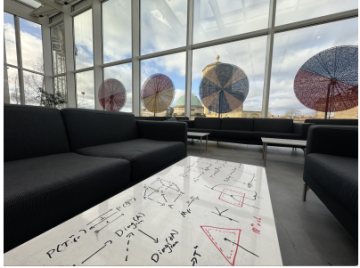Demarcating geographic regions using community detection in commuting networks with significant self-loops.
He, M
Glasser, J
Pritchard, N
Bhamidi, S
Kaza, N
PloS one
volume 15
issue 4
e0230941
(29 Jan 2020)
The Student Tea@11 service is starting this Monday (23rd February) at 11 am in the Common Room. We look forward to welcoming you with fresh cups of coffee, tea, and a variety of biscuits, all served efficiently by one of our student volunteers.
We hope to see many of you there to start us off strong. Can’t make it Monday? No need to worry: we’ll be there Mon-Fri from 11:00 to 11:15 am until the end of Week 9.
Unitary Friedberg–Jacquet periods and anticyclotomic p-adic L-functions
Graham, A
Forum of Mathematics Sigma
volume 14
e21
(09 Feb 2026)



 Ramen Lunch Pop-Up, Tuesday 24 February, 12 – 2 pm
Ramen Lunch Pop-Up, Tuesday 24 February, 12 – 2 pm Oxford Mathematics Public Lecture: Wednesday 11 March, 5 pm.
Oxford Mathematics Public Lecture: Wednesday 11 March, 5 pm.